Klobuchar crashes top tier as Sanders, Buttigieg top field in New Hampshire: ANALYSIS
Assumptions about the Democratic primary race have been turned upside down.
The biggest assumptions about the Democratic primary race have been turned upside down -- with signs that the party will continue to turn itself inside out for a while.
Sen. Bernie Sanders, I-Vt., won New Hampshire's primary on Tuesday after getting the most votes in Iowa a week ago, securing for himself a front-runner's slot under any traditional understanding of presidential races. But traditions are falling apart in politics these days.
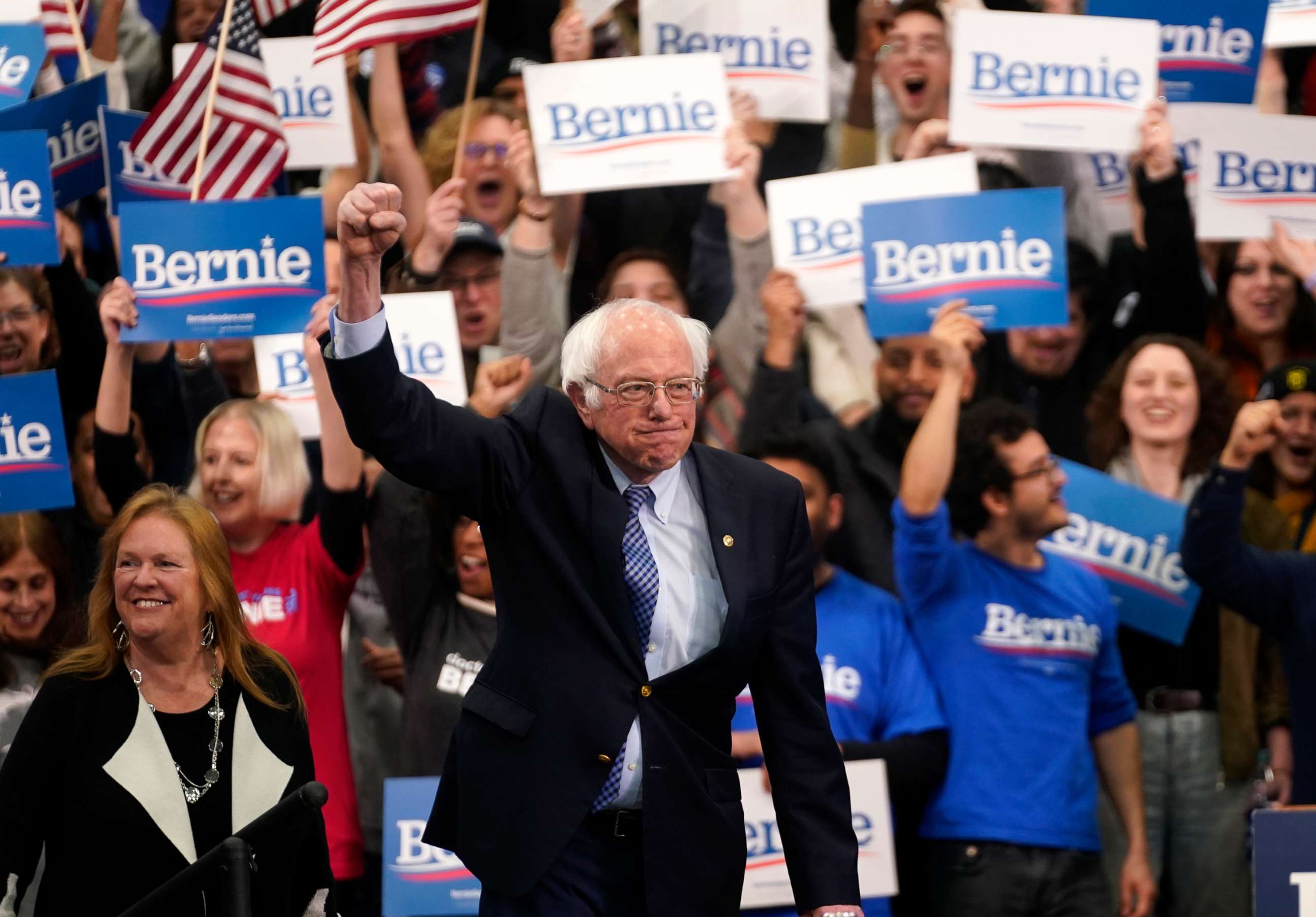
Former South Bend, Indiana, Mayor Pete Buttigieg is on track to have accrued as many delegates as Sanders out of the first two states. Things get more complicated from there, in what remains a five-way race that will soon expand to include a wealthy sixth.
While Sanders won New Hampshire narrowly, he did it with barely a quarter of the vote -- nowhere near the 60% he got in trouncing Hillary Clinton in the state in 2016. The win was tempered by exceptionally strong showings by two more moderate rivals, Buttigieg and Sen. Amy Klobuchar, D-Minn.
"A campaign that some said shouldn't be here at all has shown that we are here to stay," Buttigieg said.
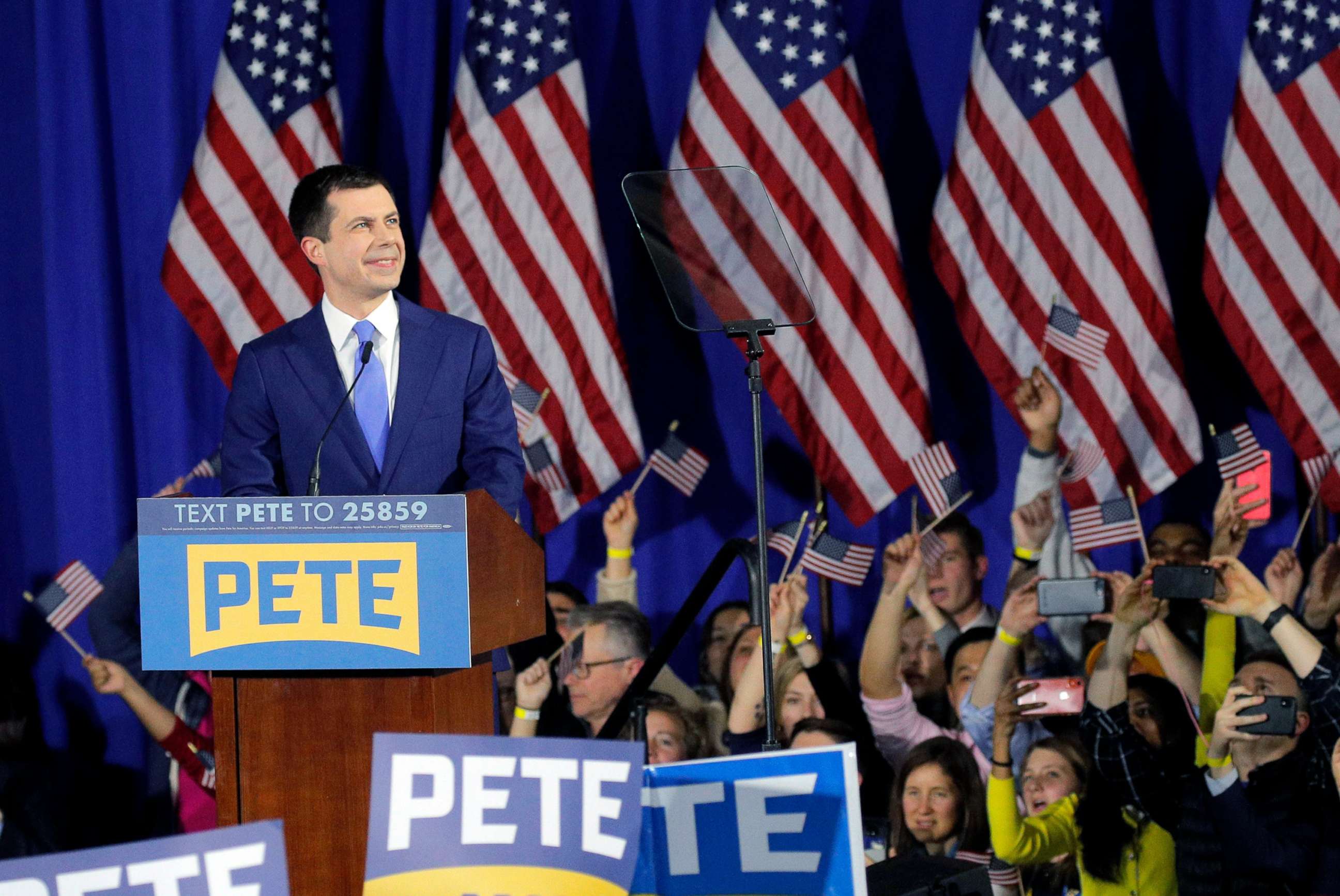
Klobuchar was the biggest surprise of the night, vaulting herself into contention in a state where the biggest bumps have famously derived from comebacks.
"Donald Trump's worst nightmare is that the people in the middle -- the people who have had enough of the name-calling and the mudslinging -- have someone to vote for in November," Klobuchar told supporters in New Hampshire Tuesday night.
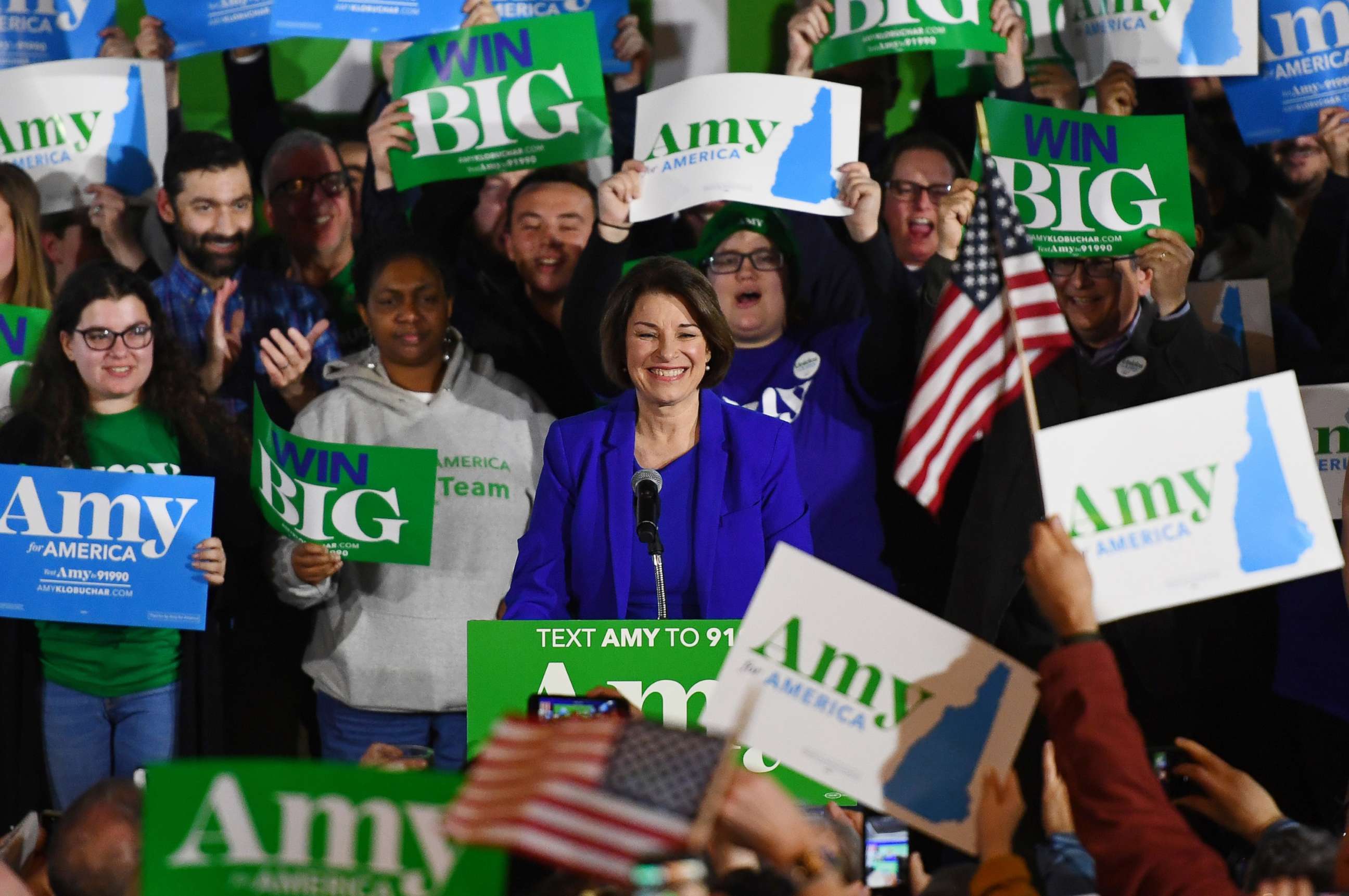
Their showings suggests a large swath of voters who are uncomfortable with the progressive politics of Sanders, a self-described Democratic socialist.
In declaring victory, Sanders on Tuesday night spoke of the need to "unite together," mindful of Democrats' anxiety about defeating President Donald Trump. But before Sanders spoke, his supporters booed TV images of Buttigieg, with chants of "Wall Street Pete."
According to exit polls, Buttigieg and Klobuchar won a combined 63% of voters who cited uniting the country as a top concern. Fully half of Democratic voters made up their minds on Election Day or in the last few days, reflecting on the turmoil in the race.
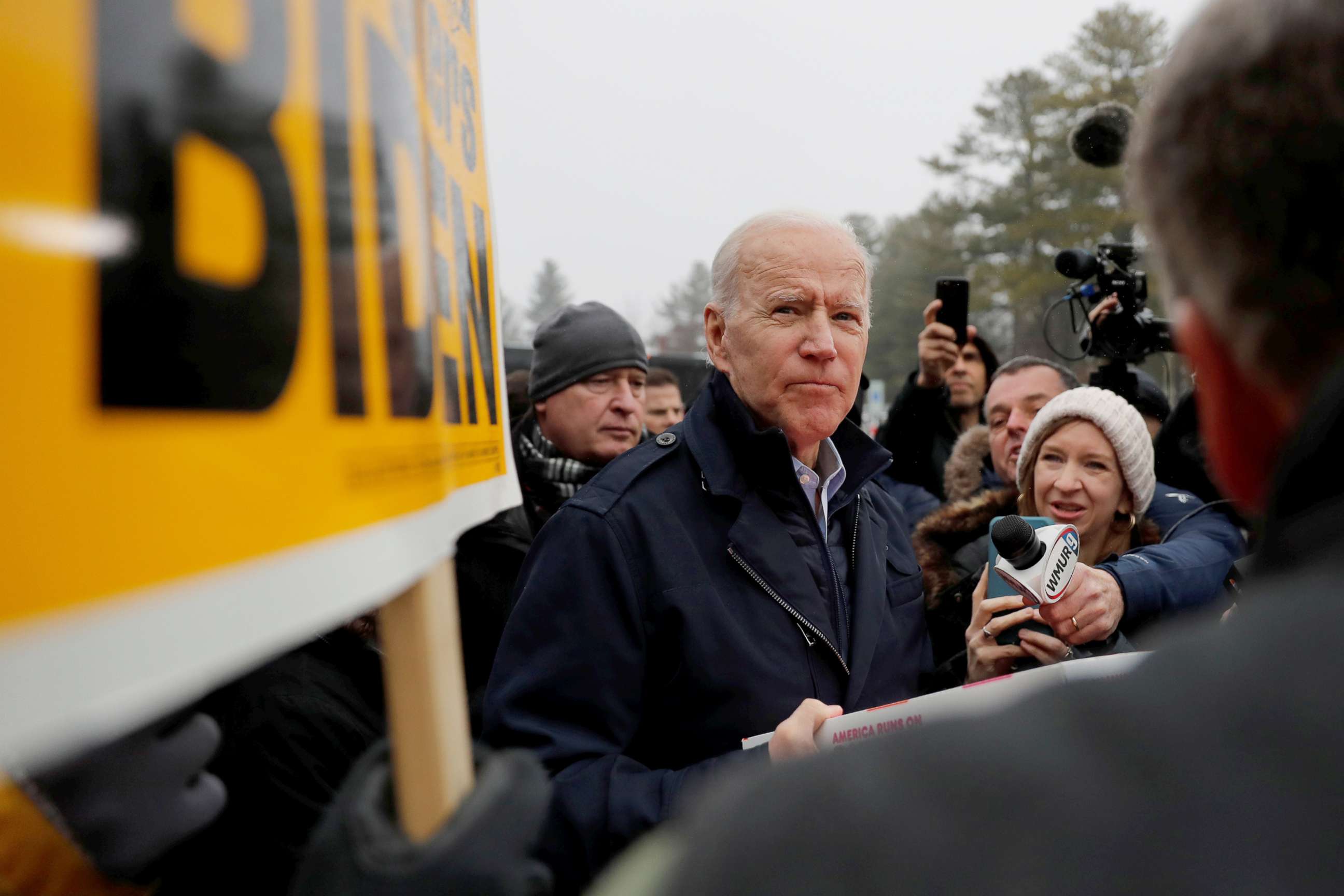
Former Vice President Joe Biden, the national polling leader virtually since the moment he started running, left New Hampshire early ahead of a fifth-place finish. He has narrowed his focus to a breakthrough Feb. 29 in South Carolina -- the first state where African Americans comprise a significant portion of the electorate.
"You're not winning the Democratic nomination -- you shouldn't win it -- without black and brown voters," Biden told supporters in Columbia, South Carolina, late Tuesday.
The candidate many assumed would wind up challenging Biden on his left, Sen. Elizabeth Warren, faded in a neighboring state to a distant fourth place. Warren on Tuesday night congratulated those who had stronger nights -- singling out Klobuchar, the only other woman still in the race -- while also referencing the stakes for the party.
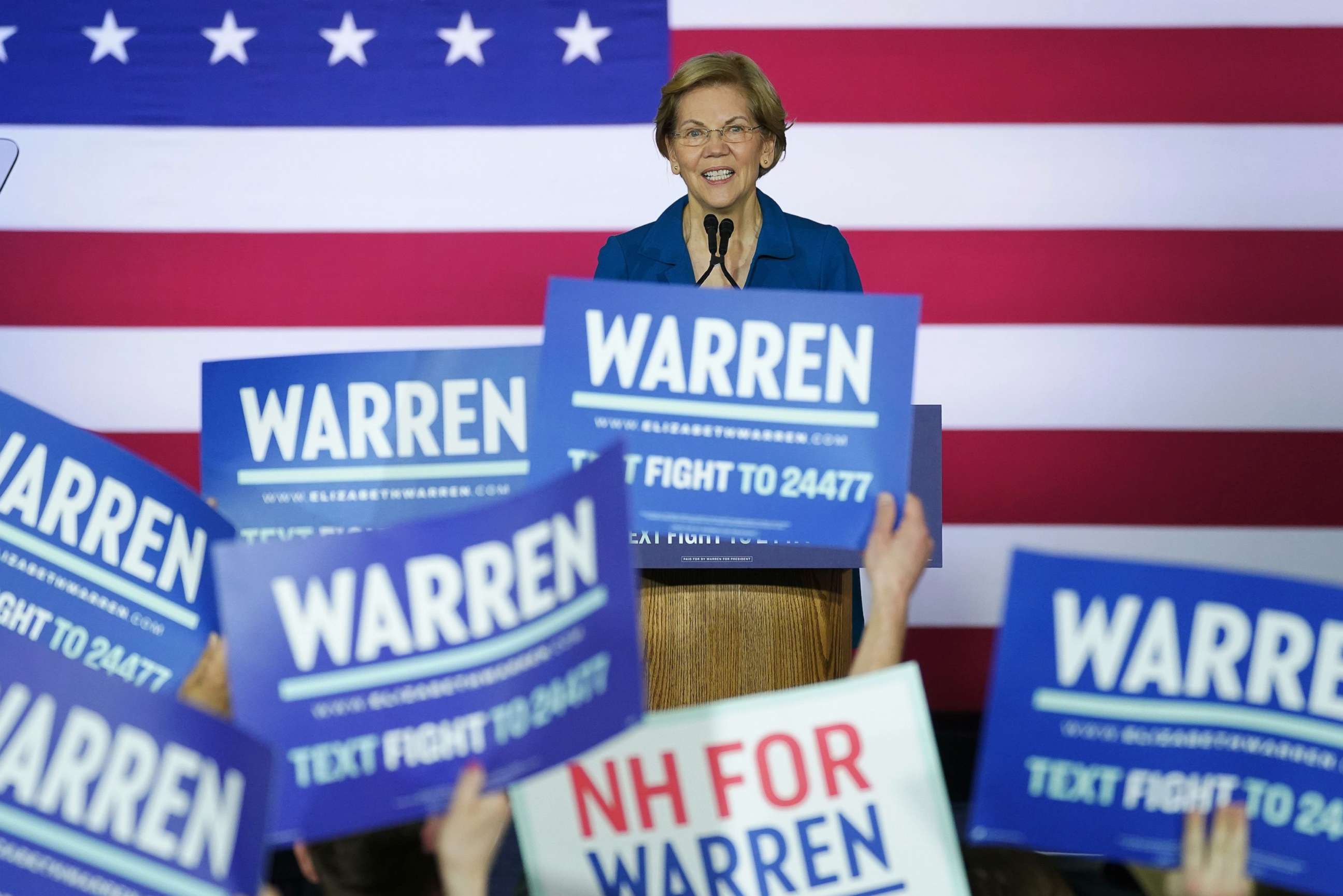
"The question for us, Democrats, is whether it will be a long, bitter rehash of the same old divides in our party or whether we can find another way," she told supporters.
But there are multiple other ways for the party still. Sanders is well positioned to gain more delegates in upcoming contests in Nevada and South Carolina, and the fact that several moderate candidates remain strong could divide anti-Sanders votes.
Biden, of course, is still making a play for those voters, along with African Americans. Both Buttigieg and Klobuchar also have potential weak spots in their attempts to appeal to black voters.
Looming on the other side of anything that happens this month is Michael Bloomberg, who is already in mid-double-digits in national polls and showing strength among voters of color. Warren still can't be counted out, either, with her appeal for unity combined with progressive politics that hew closely to Sanders'.
If the race comes down to who, if anyone, can stop Sanders, the issue for Democrats may not be that they have no good option. It could be that they have too many options.




